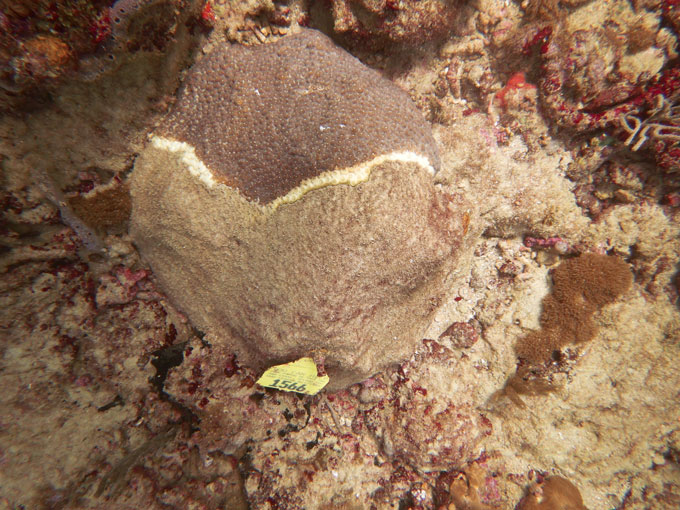Great star corals in the grip of disease have been saved with probiotics — beneficial bacteria that attack or displace invading pathogens or possibly trigger immune responses to them.
What’s causing this deadly disease remains unidentified. But researchers at the Smithsonian Marine Station in Fort Pierce, Fla., were able to successfully halt progression of the disease’s symptoms, the team reports June 5 in Frontiers in Marine Science.
The condition is called stony coral tissue loss disease and is characterized by white lesions that lead to the loss of polyps — tiny soft-bodied organisms similar to sea anemones — blanketing coral. Eventually, nothing but the white coral skeleton is left behind. The disease emerged in Florida in 2014 and has spread rampantly throughout the Florida Keys and the Caribbean.

Researchers suspect that the disease is bacterial in nature. Antibiotic treatments can offer a quick fix, but these drugs do not prevent reinfection and carry the risk of the mysterious pathogen building resistance against them. So, in late 2020, the Smithsonian group tried for a more sustainable solution, giving probiotics to 30 infected great star coral colonies.
The helpful microbes came from corals tested in the lab that showed resistance to the disease. “We noticed that one of the coral fragments would not get infected … so one of the first things we did was try to culture the microbes that are on this coral,” says microbiologist Blake Ushijima, who developed the probiotic used in the team’s experiment. “These microbes produce antibacterial compounds … and one had a high level of activity against bacteria from diseased corals,” acting as a “pro” biotic, by somehow neutralizing pathogens.
The identified microbe, a bacterium called McH1-7, became the active ingredient in a paste delivered by divers to several infected colonies. They covered these colonies with plastic bags to immerse them in the probiotic…
Read the full article here

